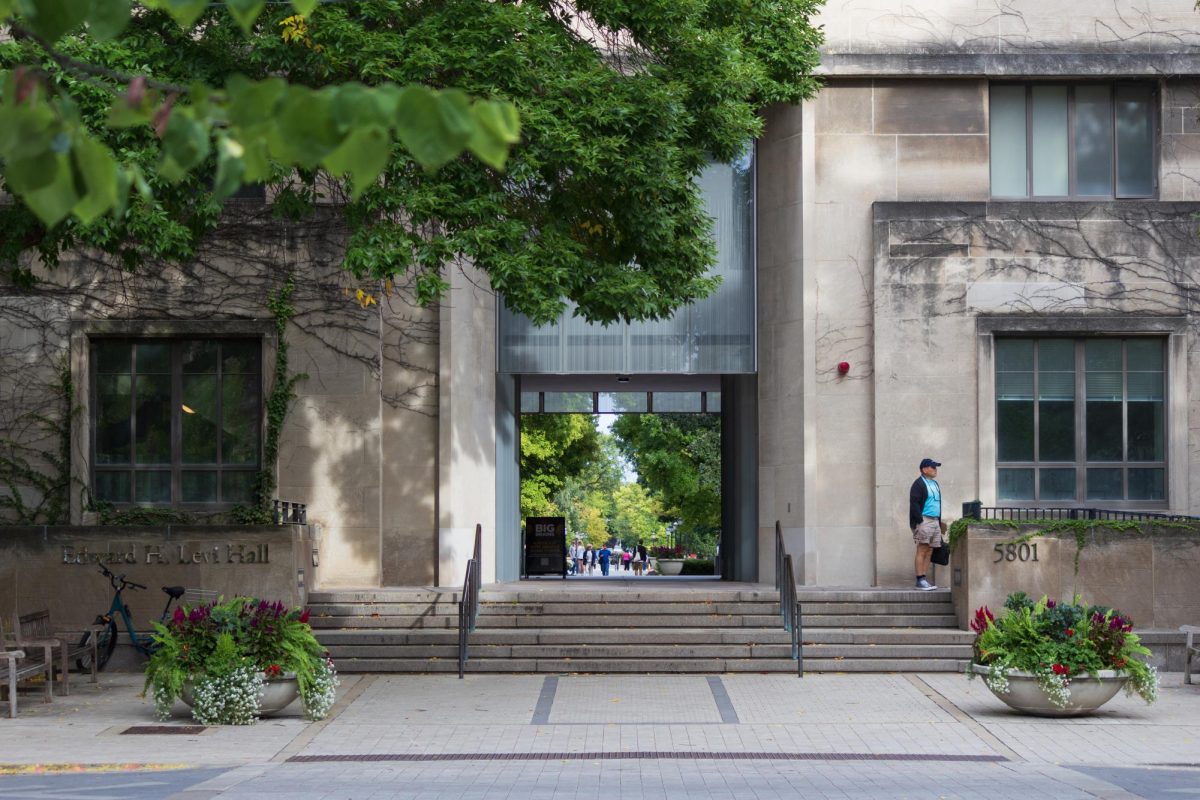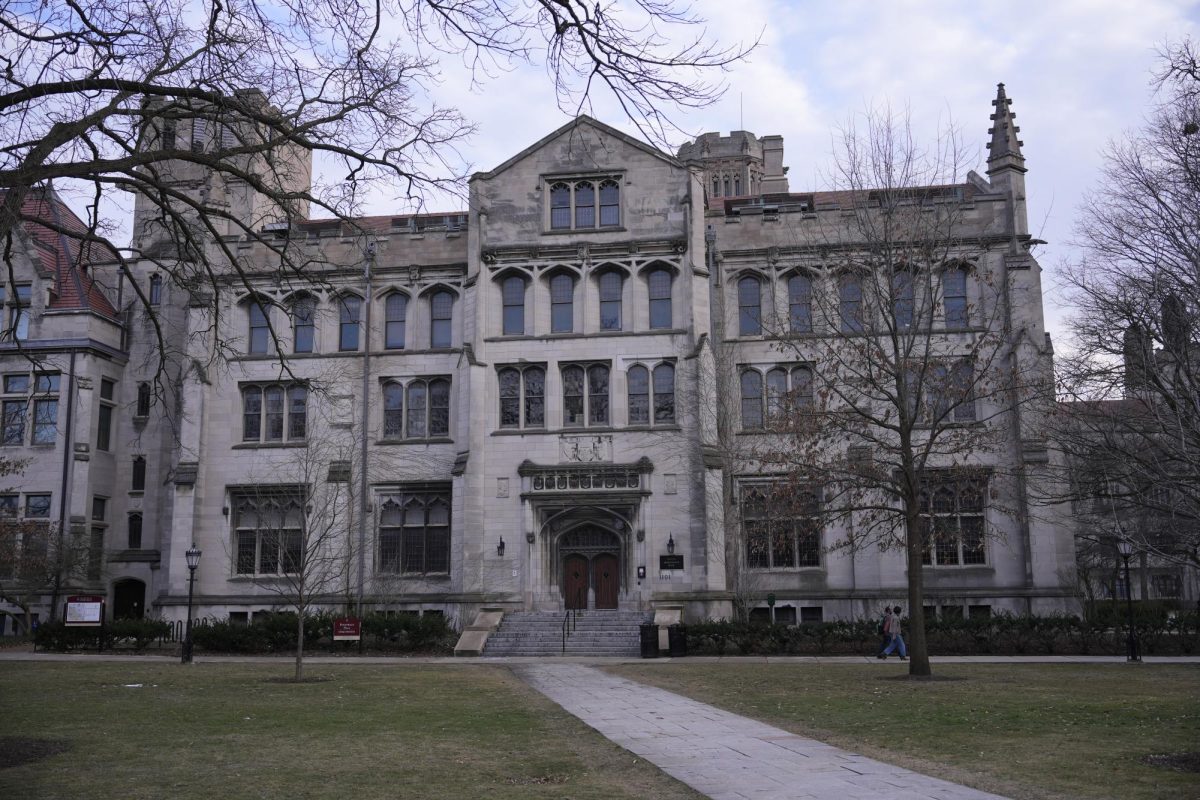Early March is one of my favorite times in the academic calendar—and not just because it’s not February anymore. Every year at this time, admitted graduate students come to campus for recruitment days to learn more about the programs they are considering, meet with current students and faculty, and begin to form relationships with each other. It’s an exciting opportunity to meet interesting people who could be future colleagues, and introduce them to the University and neighborhood that has become home to me, my wife, and now my daughter.
But this year I won’t be participating.
Last fall, the University announced a set of sweeping changes to graduate education. Among these was assigning departments, rather than divisions, the responsibility of designing teaching requirements for their students. Per the University’s continued refusal to recognize the results of graduate students’ 2017 vote to unionize, any teaching undertaken at the behest of departments will be without the benefit of a collective bargaining agreement. Under these conditions, departments that require any teaching at all become institutionally complicit in the University’s denial of rights to graduate student workers in a qualitatively new way. The ethical solution, which the Department of History has so far eschewed, is simple: don’t require Ph.D. students to teach.
There are good arguments for departments nevertheless imposing teaching requirements on their students, in spite of the University’s mistreatment of graduate student workers. Perhaps the best is that teaching is in students’ own interests; teaching is a vital component of professional training for Ph.D. students who aspire to work as faculty members. However, the University’s anti-union position hinges on the argument that graduate student teachers’ contributions to the education of undergraduates is, in the words of Dean and Director of Graduate Affairs in the Biological Sciences Division Victoria Prince, “incidental”. Of course, this is a flagrant mischaracterization of much of the teaching that graduate students perform for the University, which can include leading weekly discussion sections, performing the entirety of grading for a course, or even designing and teaching their own courses with no immediate faculty supervision.
To be generous, though, let’s assume that in the future graduate student teaching will come to resemble the picture painted by administrators, where undergraduates are basically lab rats for graduate student trainees in carefully controlled environments. How can a teaching experience where undergraduates are “incidentally” educated be meaningful preparation for academic employment? If graduate student teachers grade only a token number of papers or lead one or two discussion sections over the course of the term, how will they be ready to step into positions that require them to grade dozens of exams and papers, lead multiple class sections a week, and handle all administrative responsibilities across multiple classes within a single term? When we describe our experience in job documents like cover letters and statements of teaching philosophy, how are we supposed to explain away our own administration’s devaluation of our contributions to students’ learning? The administration has claimed that unionization will undermine the value of teaching to graduate student professionalization, but in fact the effects of the administration’s own vision of the place of graduate students in College education are far more pernicious than any harm collective bargaining could conceivably inflict.
This situation has put departments in an admittedly impossible situation, and I sympathize with them for that. They must choose between implementing the version of graduate student teaching dictated by the administration, with all its deleterious effects on graduate student training, or perpetuating the administration’s lies about what graduate students are actually doing in the classroom. Of course, honesty isn’t always a clear-cut issue, especially when the interests of others are at stake. I won’t begrudge faculty and colleagues the logic that suggests we should suck it up and make the best of a bad situation; that we should still strive to create teaching requirements for graduate students that will prepare them for greater responsibilities later on, while minimizing our dependence on unrecognized labor. Although, especially at this historical moment and at an institution of higher learning, compromising intellectual integrity, even in the name of the greater good, should bear a second thought.
More concerning to me is that accepting the administration’s terms for graduate student teaching sounds another round in the steady erosion of faculty governance, not only at the University of Chicago, but across the country. As The Maroon has reported, faculty have expressed concerns about this trend. But what does it take for concern to become resistance? Last spring, we graduate students put ourselves out on the (picket) line, and faculty, including those in the Department of History, lent their support and even joined our picket lines in a welcome show of solidarity.
Participating in a strike was unusual for me because I like working within institutions. I’ve been the president of my department’s student association and served on one of the much-maligned Dean’s Advisory Councils for two years because I saw a chance to make things better for students. But working within institutions is only effective if we use the opportunities at our disposal to subvert the aspects of them that are broken. Every department now has the opportunity—working entirely within the institutional parameters available to it—to demonstrate the value of graduate student labor to the University by refusing to require their students to perform teaching labor without the collective bargaining agreement that we voted to negotiate.
I understand where my department seems to be going by working within this system, but I can’t go with it. It’s unfair to both prospective students and the department to participate in recruitment either while keeping these reservations unspoken, or while speaking them when convincing prospective students to come here. So, I’m going to sit this year out.
I am not betraying my department. I look forward to new student recruitment every year because I want my department to prosper, and that means inviting other people to experience how great this university can be. That’s why I’ve gone to as many History Day events as I can and have housed six different admitted students over the years. But if we aren’t using every means at our disposal to make the University as good as possible for the prospective students we’re inviting to campus, then we’d better send them somewhere else. I hope people in my department will understand, but even if they don’t, our university is supposed to value free speech. If we don’t use our speech to criticize the brokenness of our own institution, then what good can it do beyond our campus?
Daniel Knorr is a PhD candidate in the Department of History.







